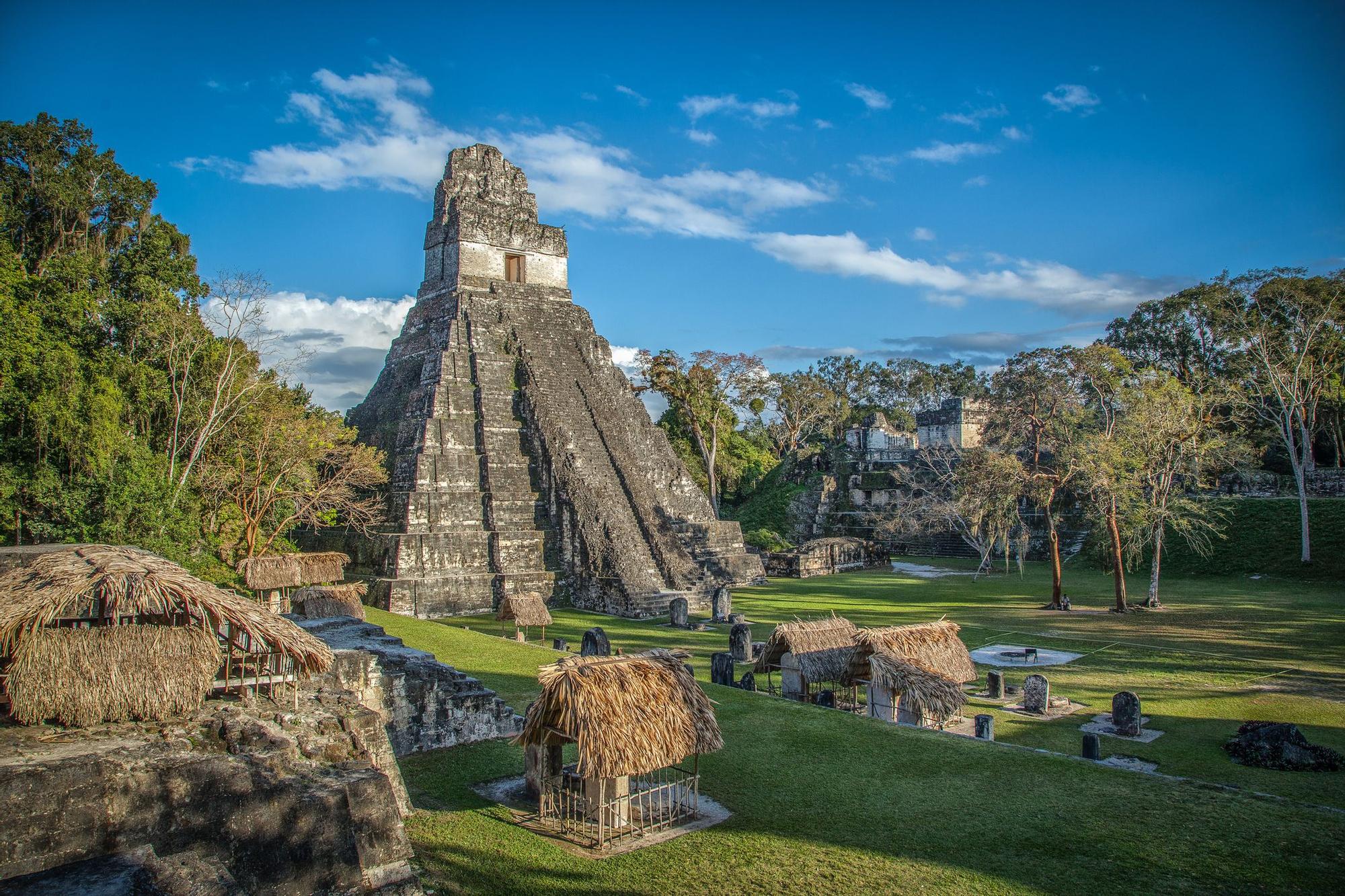Guatemala is a country that despite is size or boringness, is largely thought about as being a criminal ridden shithole in Central America, only known for civil wars. The more investigation and reviews you go over in areas of the city, the more you begin to ponder that Guatemala is a very interesting place that is going under the radar. I wanted to share some economic figures to show you that they are quietly beating those in the region and even have a famous libertarian (Gloria Álvarez) radio and television presenter who has many followers.
Guatemala the largest economy in Central America in terms of population (estimated at 17.3 million) and economic activity (gross domestic product -GDP- of US$ 92.7 billion in 2022). The country has experienced stable growth (3.5 percent on average in 2010-19), supported by prudent fiscal and monetary management and an open economy, and had one of the smallest economic declines (-1.8 percent) in Latin America and Caribbean region in 2020 during the COVID-19 scamdemic.
Increasingly, it has offered competitive environments for the development of international investments (see below). It has also a strategic geopolitical and geo-economic location since it is located in the center of the American continent and has access to the Pacific and Atlantic oceans.
However, Guatemala’s solid economic growth has not translated into robust poverty reduction: the country’s poverty and inequality rates are among the highest in LATAM, with a large and underserved population, mostly rural and indigenous. Poverty is estimated at 55.1 percent of the population in 2023 and the size of Guatemala’s informal economy is estimated at 49 percent of GDP, with 71.1 percent of the occupied population employed in the informal sector. Some estimates even hold 70% of the population in poverty and the top 1% holding nearly 60% of the countries’ wealth. It’s success is not widespread in the country, but it’s increasingly becoming a place for business operations.
Country Basics:
Capital | Guatemala City
Population: Approximately 17,236,000
Official language | Spanish
Currency | Quetzal (GTQ)
Territorial area: 108 thousand 889 km²
Population density: 159 inhabitants per km²
Type of Government: Republican, democratic and representative, separated into Executive, Judicial and Legislative Branches (Political Period: 4 years)
Weather: 15°C (59°F) to 25°C (77°F) all year long
Working Hours:
Government from 7:00 to 15:00 hours*
Private sector from 9:00 to 17:00 hours*
Commercial sector from 10:00 to 22:00 hours*
Growth
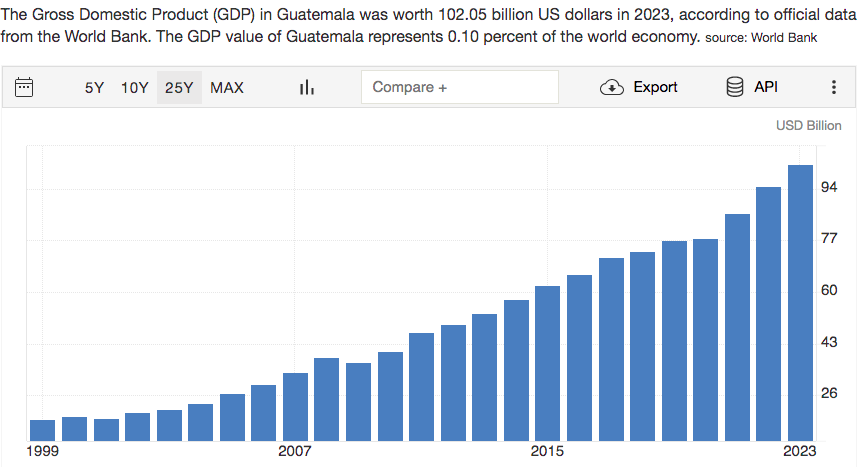
With the exception of the tech crash and the 2008 GFC, Guatemala’s GDP has increased every year for 25 years.
We can appreciate this through using the PPP per capita as well
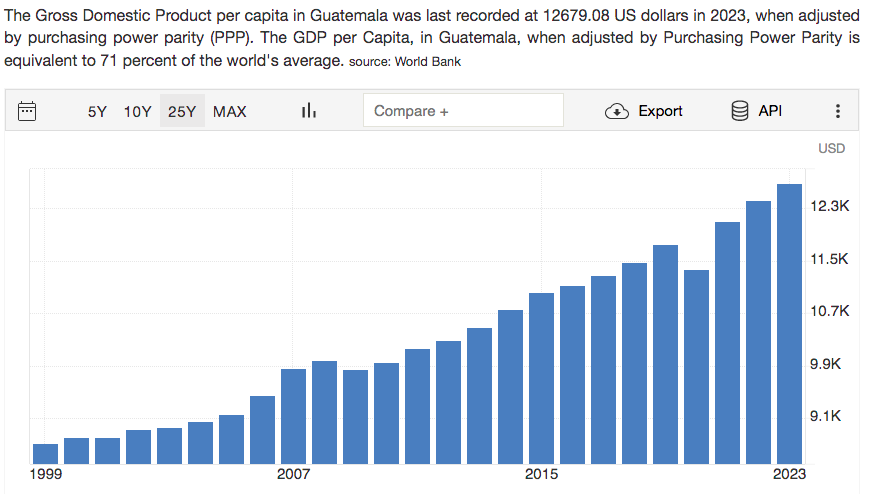
The country has returned to above-LAC average economic growth. Guatemala’s GDP grew 4.1 percent in 2022 and 3.5 percent in 2023 and is expected to grow 3 percent in 2024.

Following a foreign direct investment exceeding expectations (nearly 4B USD), the Guatemalan economy had the highest growth for the last 40 years (8%, in its
GDP).
- Their inflation has been the lowest out of all of their Central American neighbours
- They also hold the lowest level of external public debt in the region
You take this for granted, but this is huge improvement in just the last 10 years for Guatemala, now ~98% of the population has access to electricity.
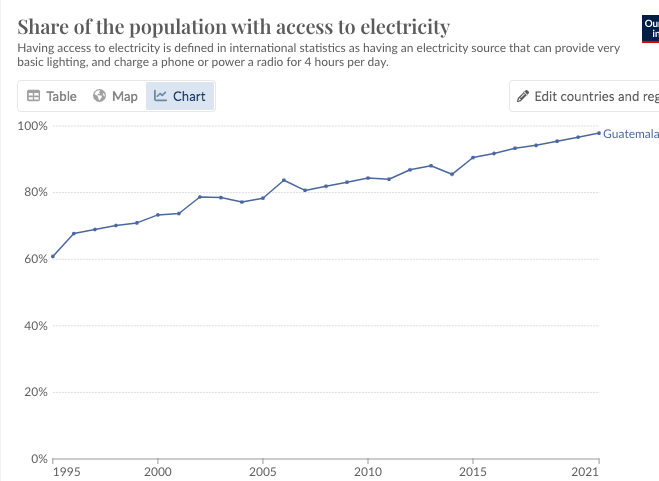
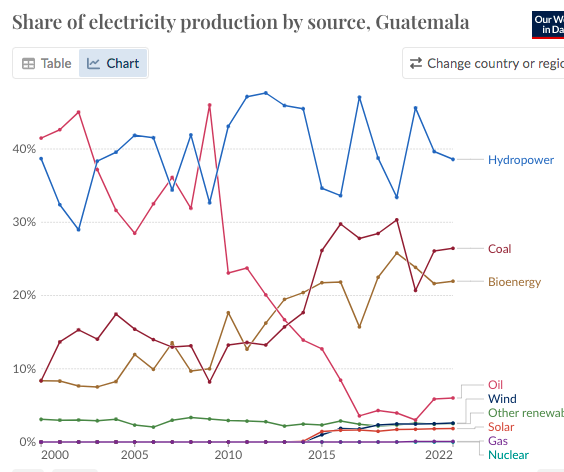
Unique Aspects
- Guatemala, is not part of the Common Reporting Standard (CRS). Yes, sure, you can brag about your “private” Swiss bank account, but in real privacy from your home country, you’ll receive that with a Non-CRS member like Guatemala.
- Guess who is NOT working on a Central Bank Digital Currency too. Guatemala
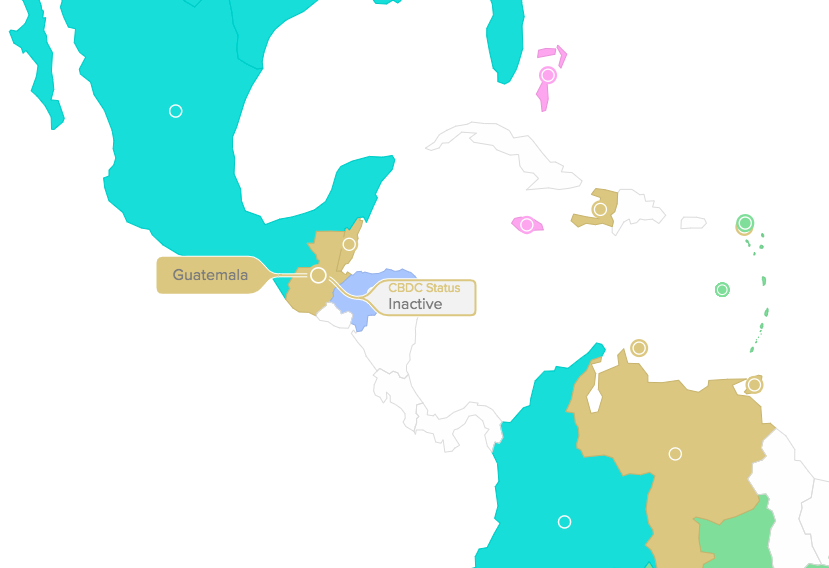
- There is considerably reduced competition for a foreigner from many perspectives (I can go into this with greater deal with subscribers in our live chat)
- Food security remains a concern, but about 1/3rd of the work force operates in agriculture; they’re not about to move to the city for an office job anytime soon
- For one reason or another, they did not get the toxic jabs from Pfizer: “Almost three years into the COVID-19 response, vaccination coverage in Guatemala is still far below target, with only 38.2% of the population completing a full vaccination schedule against COVID”
- Guatemalan residents are only subject to tax on local source income. Employment income is taxed at 5% or 7%; and passive income is generally taxed at 10%. This is one of the lowest rates in all of Latin America!!
- Companies are not taxed on their foreign income–dividends to foreign residents and corporations are only taxed at 5% (lower than Panama).
Birth rates are above replacement, the only country in the Western Hemisphere!! (Middle Chart)
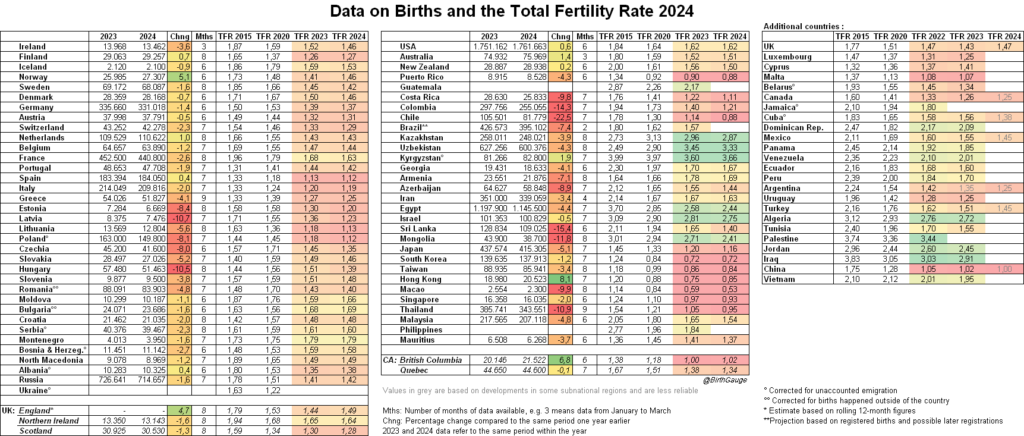
Guatemala and Mongolia (of the above list of developed countries) are the only countries replacing their population who are non-Muslim.
Economy
Guatemala has been running an account surplus for the last number of quarters and years
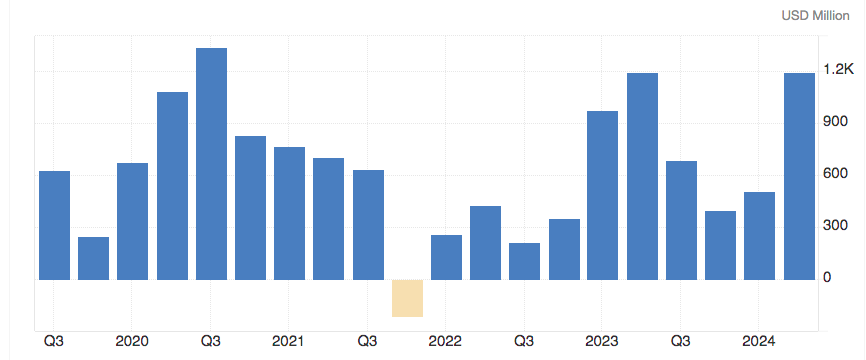
This is in spite of consistently running trade deficits. In fact the last time I could find they ran a positive trade surplus was Q1, 1996!
The Gross Domestic Product per capita in Guatemala was last recorded at 4596.32 US dollars in 2023. The GDP per Capita in Guatemala is equivalent to 36 percent of the world’s average; as a foreigner you’ll be extremely wealthy there
Hub
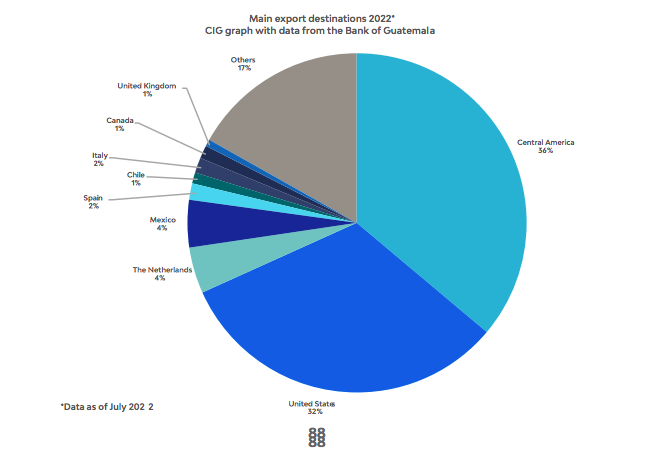

17.89%,
Guatemala has the
second largest maritime
cargo operation in
Central America, after
Panama.
A number of pro-business policies have been enacting including tax exemptions, the removal of tariffs, free exchange of all currencies, VAT exemptions, new insolvency laws and more.

Financial Options
The Guatemalan financial system is constituted by:
- 17 banks
- 14 financial institutions
- 15 storage companies
- 28 insurance companies
- 2 exchange houses
- 12 stock exchange houses
Signed and ratified agreements, in force:
Free Trade Agreement (FTA)
- United States (DR-CAFTA).
- Dominican Republic.
- Taiwan.
- Mexico.
- Panama.
- Colombia.
- Chile.
- European Union.
- United Kingdom.
- Between the Republic of Colombia and the EFTA States (EFTA).
- Central American Economic Integration.
- Deep Integration Process between Guatemala, Honduras and El Salvador.
A funny LATAM photo here, Guatemala is trying to remain on the right track!
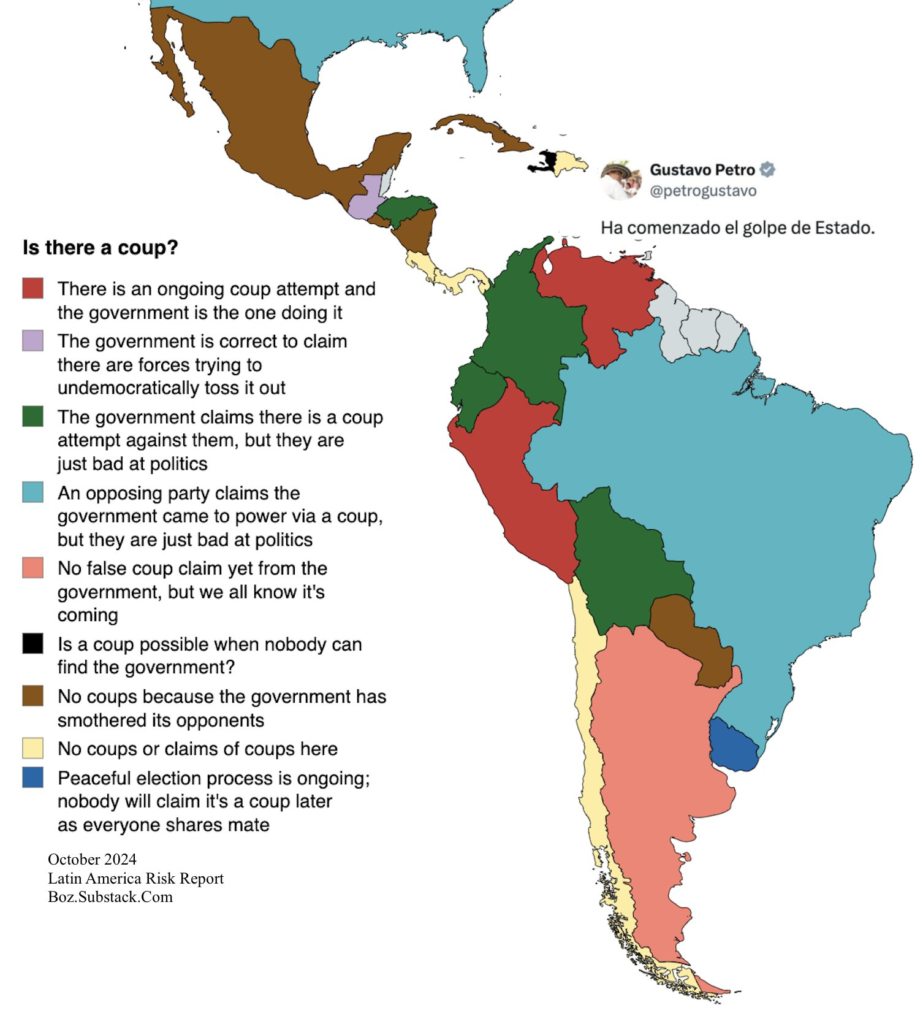
If Uruguay interests you, click here:
If Costa Rica interests you, click here:
What this is not suggesting
- Guatemala is very, very poor. There are areas in the city that would surprise you with its rapid development made and relatively normal life you can have here–but for the most part, if you haven’t been to 3rd world countries the level of poverty would be shocking
- Guatemala is quite dangerous. Homicides per 100,000 per year average about 17 a year. Safer than it’s neighbours in Mexico and Honduras, but nevertheless still very dangerous
- Politically, they are very fluid and change power often. There does appear to be a pro-business stance growing year to year, but it would be wrong to call the country stable
- The country is still very bureaucratic and corruption is high. It would not be surprising to encounter a lawyer charging you multiples the real cost of a service.
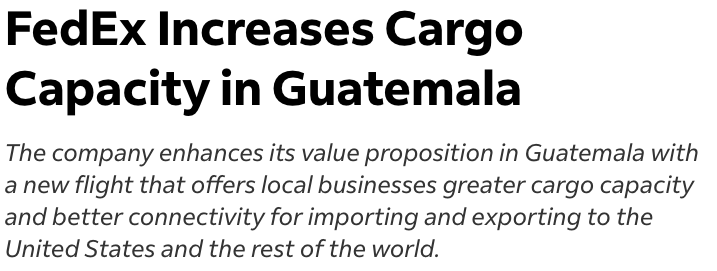
Interesting Information
Guatemala can be used in a clever way as part of your international portfolio plan too. Click the button to review the Open Door Consultancy articles or go right ahead to consult with how we can help you.
#StayOnTheBall

